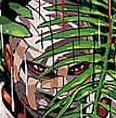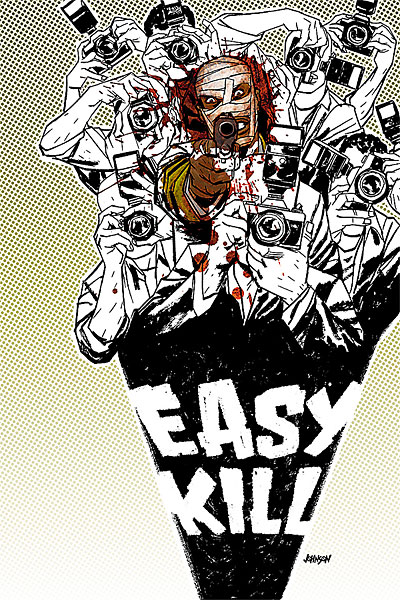- Comics
- Comics Reviews
- Manga
- Comics Reviews
- European Comics
- News
- Comics News
- Press Releases
- Columns
- Spotlight
- Digital Comics
- Webcomics
- Cult Favorite
- Back Issues
- Webcomics
- Movies
- Toys
- Store
- More
- About
By Andy Frisk
May 28, 2009 - 20:51
Moses Lwanga aka The Unknown Soldier destroys a L.R.A. battalion on the march with the help of his young captive who he turns over to GUSCO: Gulu Support The Children Organization an N.G.O. for children of the war in


Symbols, meanings and sacrifices are all looking to compose the theme of this next story arc which begins here. Dysart continues to provide his readers with tough questions and meditations on one of the world’s hardest hit by war and often overlooked human rights atrocity victim nation,
Can one’s life’s meaning be “greater than themselves” and would this justify their sacrifice? Would her murder be logically justifiable? Would her unwilling sacrifice be an act of mercy sparing the lives, possibly, of thousands? Does she have a say in the matter? Would it be a political killing the like of which will only accomplish to sway opinion with no real results? Does the fact that she will not have a say in her sacrifice even make a difference? She can’t ask for the cup to be passed, she doesn’t even know yet that the cup is before her. Does Moses have the right to play God here and make the decision of sacrificing her against her will? Basically, does he have the right to play God and make a decision that God is seen to have made by sacrificing his own son? Is he being Godly to do so and if he does will it be a holy decision or one to be derided? By way of metaphor is the Margaret Wells story just a comment on Christianity in general with Moses playing the part of Judas? These are not easily answered questions but ones that Unknown Soldier #8 is raising. For a comic book, these are pretty serious questions and Unknown Soldier is not just another comic book, but a highly intelligent, controversial, education and worthwhile one that is at a perfect point for new readers to jump on board. Often times great storytelling and art raise the questions but do not provide the answers allowing the readers to come together to form solutions, if even possible, or at least create debate and therefore bring attention to the issues raised in the story or the story’s location.
Overall, Unknown Soldier is one of the most important works being produced in the medium right now. Dysart’s and Ponticelli’s art combine to provide a worthy tale that not just entertains, it makes you think, and that’s why this series is so important.
Rating: 9 /10